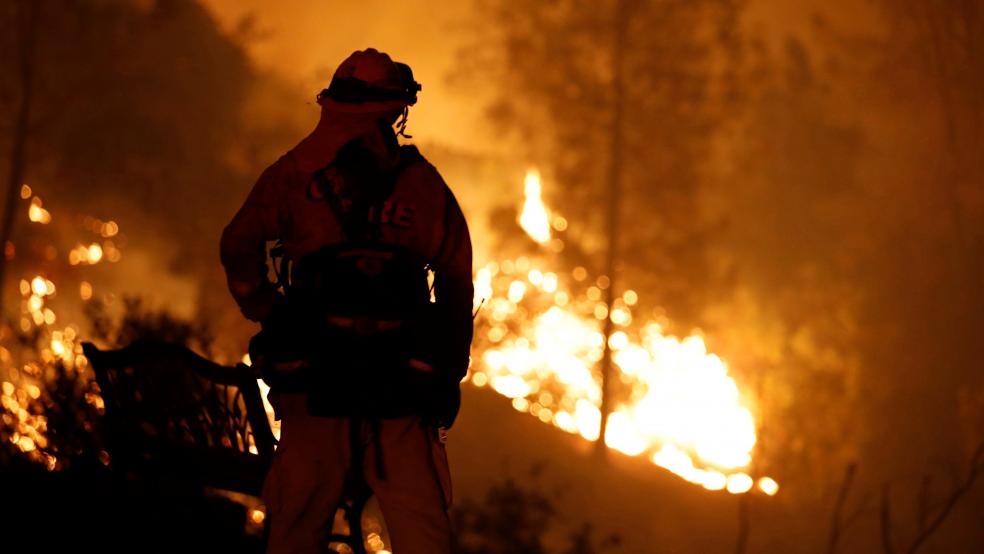Deficit hawks warn that soaring budget shortfalls and rising national debt will leave less fiscal space — or at least the perception of less fiscal space — for lawmakers to respond to the next economic downturn or unforeseen crisis. But the concern doesn’t just apply to a 2008-style financial crisis. It’s an issue for natural disasters as well.
The wildfires tearing through California are the latest example, as they may set the stage for another showdown over federal spending for disaster relief, according to Mike Hillis and Scott Wong of The Hill.
This wildfire season has been more destructive in California than last year’s, with 3,770 fires reported so far, up from 3,440 during the same period in 2017. Many experts think it will get worse.
Congress is expected to turn to disaster relief when the House returns to Washington in September, but a big fiscal question looms over the issue: Will lawmakers pay for the emergency aid, and how?
In the last year, Congress has provided over $100 billion in supplemental funding in response to hurricanes, flooding and wildfires, and the Federal Emergency Management Agency still has roughly $27 billion to spend. But the size and intensity of the current fires and the expectation that there will be more damage ahead has some lawmakers thinking about the need for additional funding, and California is expected to make a substantial request for federal aid.
“If you look at the scale, especially of the Carr Fire in Redding, I think it’s reasonable to assume we’re going to need supplemental help,” Rep. Jared Huffman (D-CA) told The Hill. “Whatever supplemental is needed in September, that’s the critical time frame to make sure that [a] minibus or omnibus or whatever it is we come up with includes adequate fire disaster relief.”
But funding could be an issue. Another Californian in Congress, House Majority Leader Kevin McCarthy, who has long claimed to be a fiscal conservative opposed to deficit spending, wants to be the next House Speaker — which means he’ll need help from the deficit-hating archconservatives in the House Freedom Caucus and Republican Study Committee. Many members of those groups opposed deficit-funded relief packages last year, and they could demand budgetary offsets — spending cuts — before funding any new aid requests.
That could put McCarthy in the difficult position of demanding offsets for disaster relief in his own state — or refusing to do so and thereby losing support from conservatives. Last December, McCarthy asked lawmakers not to “play politics” on an $81 billion package for hurricane and wildfire relief for states including California, but he may have trouble making that argument again as he seeks support in his run for the speakership.
Disaster funding has tripped up conservatives in the House before, The Hill notes. In 2011, then-Majority Leader Eric Cantor (R-VA) demanded that earthquake relief in his home state be offset with spending cuts, opening the door to attacks from Democrats and setting the stage for a battle he eventually lost.




